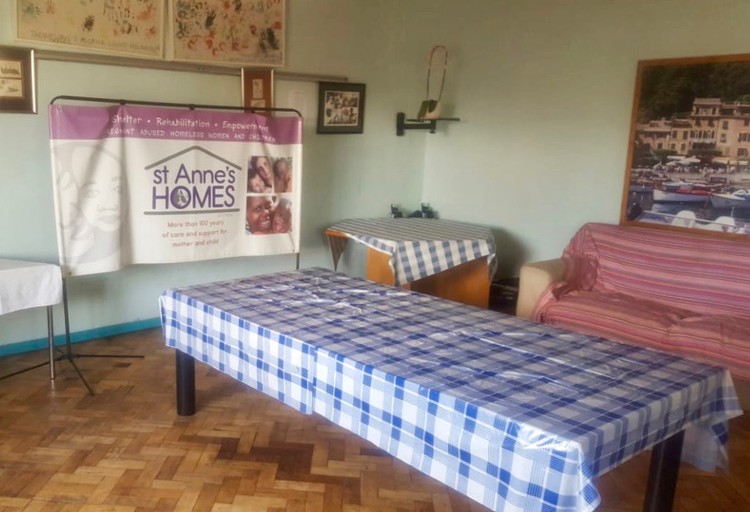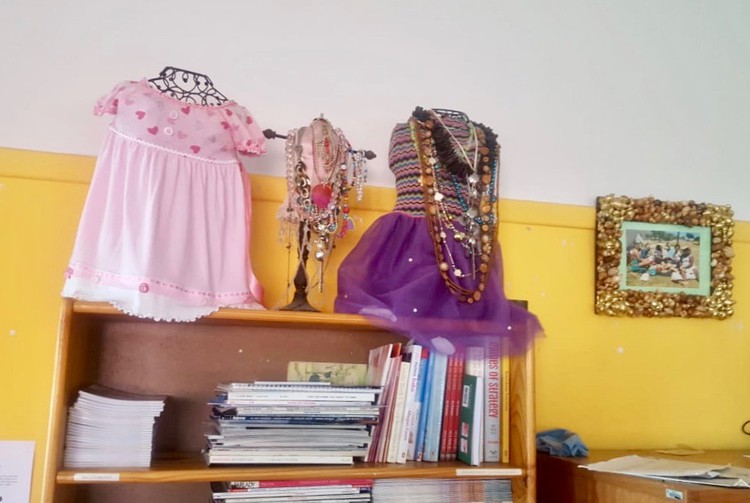Shelters for abused women battle to find funds
State provides 40% of money. Shelters need to raise the rest from other sources.
Abused mentally, physically and emotionally by her husband for 15 years, Nadia Louw says at first she did not believe she could be helped at St Anne’s Home. But after living there for three months she finally feels she is at home.
“I was totally broken. I had black eyes … and bruises everywhere. He [my husband] made me believe I was not good enough. I constantly blamed myself for the abuse. For years I tried to fix things myself by changing for him, in the hope that the abuse would stop,” says Louw.
Louw, who is currently employed as a receptionist at a Cape Town hotel, is not sure when she will leave St Anne’s. “I am uplifted here, I am provided with everything that I need and we even do skills development,” she says.
Louw is one of thousands of women victims of abuse and domestic violence who seek help in shelters. But shelter managers say funding is a major problem.
St Anne’s Home in Woodstock gets 40% of its funding from the Department of Social Development (DSD). Director Joy Lange says they have to find the rest themselves and rely heavily on donations.
“Our finance operations manager and I had to go without a salary on four different occasions. But we always make sure that our employees are paid,” says Lange.
Walking into St Anne’s, GroundUp was greeted by children playing happily on the jungle gym outside. The two-storey home currently has 21 beds. The majority of women it shelters do not have matric.
“We take children up until the age of five. Women stay with us for four months even though the government only funds us for three. Sometimes women come here with no documentation, because when they fled from their abusive partners they never took it. So we help them get documented. We also provide court support when a woman has opened a case,” says Lange.
Bernadine Bachar, director of the Saartjie Baartman Centre for Women and Children in Manenberg, says the shelter is also constantly battling for funds. “The funding supplied by the department [DSD] covers approximately 35% of our total monthly expenditure. We have battled to find the funding to expand our services. For example, we would like to have legal advice and dedicated child counselling teams; both are sorely needed. There are also times where we struggle to cover the running costs of the centre because we are between funding rounds or face unexpected high demand for accommodation,” said Bachar.
The Saartjie Baartman Centre houses up to 100 women and children at a time.
The National Shelter Movement of South Africa (NSM) and the Heinrich Böll Foundation are running a three-year research project on the importance of shelters for abused women and children.
According to Claudia Lopes, project manager at the foundation, the distribution of funds to shelters is “haphazard and inadequate”. Lopes told GroundUp that there was no legislation on shelter funding, even though domestic violence was widespread.
“Government needs to look closely at what is needed in shelters. They need to look at the ratio of social workers to clients; they need to subsidise a third house mother; currently, there are only two house mothers in shelters; and skills development needs to be improved,” said Lopes.
The skills development room at St Anne’s Home. Photo: Mary-Anne Gontsana
Shelters for abused women are funded under the Victim Empowerment Programme (VEP), which aims to help victims of crime and violence and their families to deal with the impact of the incident they have experienced.
Lopes said, “There’s actually been some good news with regards to the Western Cape funding of shelters. I’ve congratulated my contacts at the provincial DSD on this. The chief director has told me that there will be further increases next year.”
Provincial DSD spokesperson, Sihle Ngobese, said the province had allocated just over R27.7 million for shelter services under VEP. This funds 16 shelters for abused women, as well as NGOs. “The overall budget which supports children and women, the Children and Families Programme, is the largest single spending item, amounting to R667 million.”
In his DSD budget speech in March provincial Minister Albert Fritz said an additional R13 million was allocated to bring the VEP budget to R45 million. Among other increases, there would be increased support to residential NGOs by 30% per beneficiary; increased support towards house mother salaries from R2,116 per month to R3,500; and funds for skills development initiatives for victims at all shelters increased to R2,500 per person.
The article was edited after publication. Lopes was quoted as saying: “Shelters for abused women and children are provided the same rate of funding no matter how full the shelter is”. It did not explain that shelters are funded differently in different provinces and the quote does not pertain to the Western Cape
Support independent journalism
Donate using Payfast

Don't miss out on the latest news
We respect your privacy, and promise we won't spam you.
Next: We are living in a pigsty, says ward councillor
Previous: Western Cape’s mounting rubbish problem
© 2018 GroundUp.
This article is licensed under a Creative Commons Attribution-NoDerivatives 4.0 International License.
You may republish this article, so long as you credit the authors and GroundUp, and do not change the text. Please include a link back to the original article.


